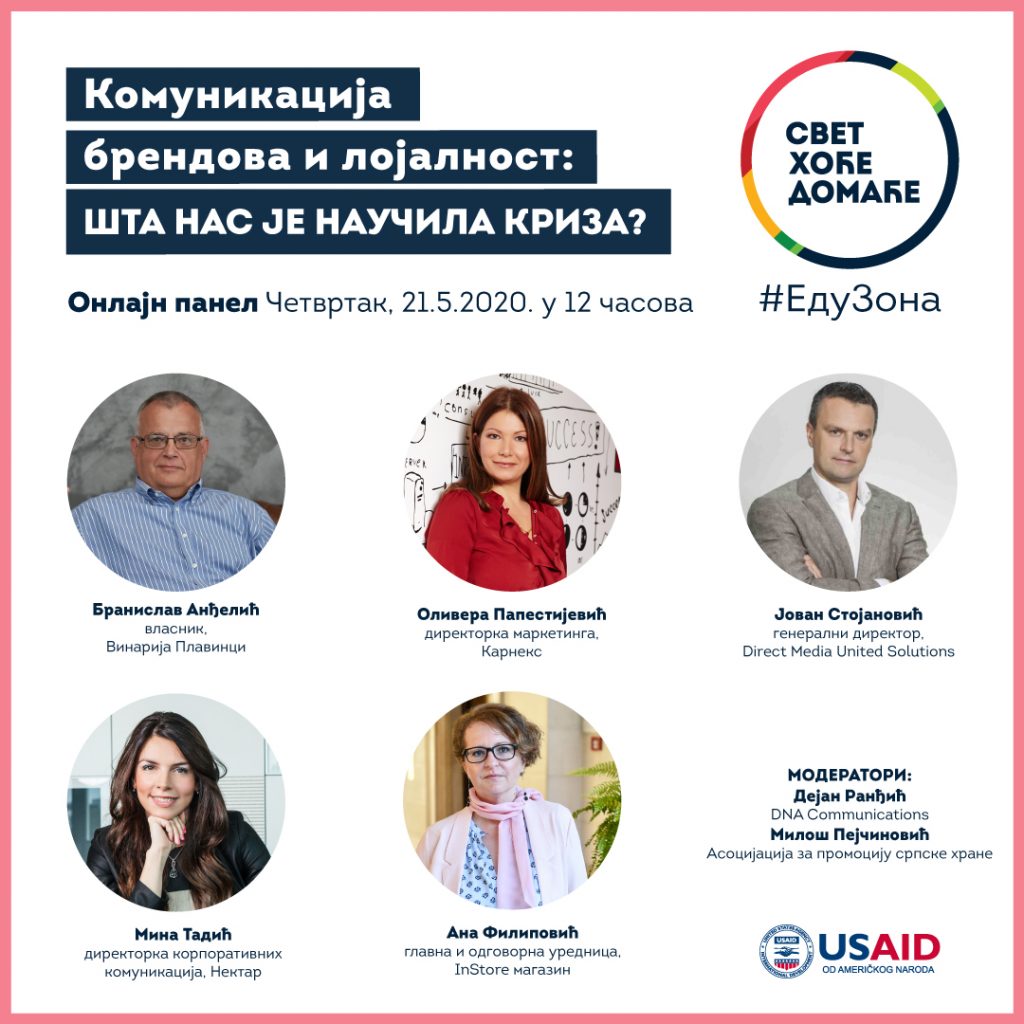On Thursday, May 21, 2020, USAID Competitive Economy Project organized the eighth online panel discussion as part of the “Svet hoće domaće” initiative in order to inform and advise food producers on key issues and ways to better cope with the Covid-19 pandemic. The panel discussion titled “Brand Communication and Loyalty – What the Crisis Taught Us” covered how food industry companies communicated with their customers during the crisis, if they succeeded in adapting to consumers’ needs and how consumer habits and expectations have changed in the meantime. The importance of investing in strengthening relations with consumers was also discussed, as well as forecasting the upcoming changes and the near future plans.

Panelists were Jovan Stojanović, Director of Direct Media United Solutions, a leading media system in South-East Europe; Mina Tadić, Director of Corporate Affairs and Communications at Nectar Group, the leader in fruit processing and juices production in both Serbia and the region; Olivera Papestijević, Marketing Director of Carnex, Serbian leading meat processing company; Ana Filipović, Editor-in-Chief, InStore specialized consumer goods trade magazine, as well as Branislav Anđelić, owner of the Plavinci organic winery.
“Communication of most brands continued with the crisis outset and we can divide them into two main groups – those who continued to communicate and adapted their narrative to the situation and those who switched to crisis communication mode with messages of empathy, solidarity and humanity. Brands should not stop communicating, as this relationship usually takes a long time to build and could take a short time to break down. It is clear that certain services and products cannot be advertised during the crisis in the way they were before, but the brand message has to be present. Examples from previous crises and all the research tell us that brands that communicate, and do not retreat in such situations, have a stronger connection with their consumers,” said Mr. Stojanović.

The companies turned to communication of social responsibility – with a focus on the consumers’ safety, care for the company’s employees, and contribution to the community that the company is a part of. The attitude towards the community greatly influenced the opinion of consumers and the certain brand preferences, what was also evidenced through continued consumption of these products. Consumers tried to buy the same products they were used to before the crisis, which shows how important it is to constantly build a relationship with consumers and earn their trust. Now comes the change – the companies will need to carefully identify the customer needs and try to respond to them. When making purchasing decisions, the focus will be on products from local producers, and considering the communication, it will be on the family, true values, improving the quality of life, health.
The “Svet hoće domaće” initiative, launched in September 2018, helps the promotion and education of domestic specialty food producers. During this fast-evolving situation, the USAID Competitive Economy Project, through webinar series, will continue to serve the needs of the local food industry addressing all key issues and helping producers manage through the current situation easier.